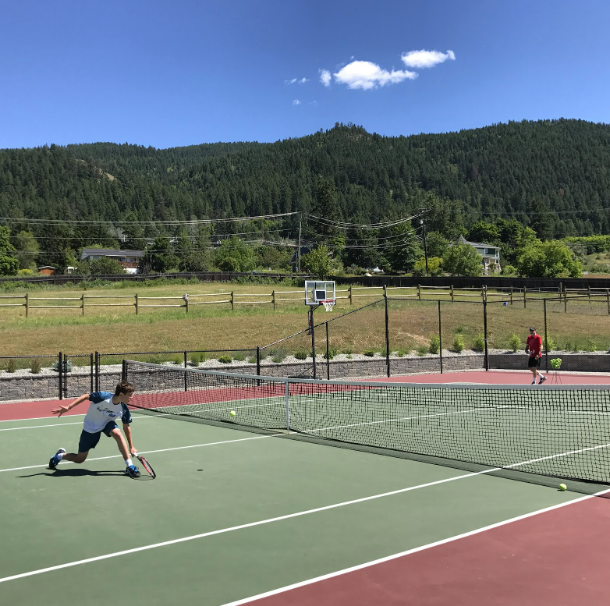HBA Sustainability Certificate
Empowering the next generation of sustainable leaders
The photo I attached is of myself and my close family friend playing tennis in Vernon, British Columbia. Vernon is a city I visited throughout my childhood as it's where my grandparents resided. As my grandparents explained to me from a young age, Vernon - like many other cities in the interior of BC – suffers from the effects of global warming; over the past 30 years, the number of wildfires in the interior of BC has increased drastically. Initially sparked by the devastating effects of these wildfires, my interest in sustainability has grown into a desire to effect positive ESG-related change.
What is your personal definition of sustainability?
Playing tennis in Vernon reminds me of the importance of preserving the natural beauty of the environment. Ultimately, this involves making sustainable choices. To me, sustainability – and “making sustainable choices” – means taking action to reduce my carbon footprint. This, in turn, is achieved by making choices that promote energy efficiency and reduce waste. Together, acting sustainability will allow us to create a more sustainable world where we can continue to thrive without depleting the world of its resources or harming the environment.
What role do you see sustainability playing in your professional career?
As hinted at in my bio, I see it playing a critical role in my professional career. My dream is to work at a firm that has strong ESG-related initiatives that will ultimately allow me to leave the world in a better state than the state than it was in when I came into it; the idea that I could make a positive impact on the world is incredibly exciting to me.
I personally believe that sustainability needs to be a key consideration when individuals are making business decisions – whether said decision is “big” or “small”. In addition to wanting to work at a company that supports this belief, one of my career-related goals is to influence others to adopt this approach. By conducting business in such a manner, I believe that my colleagues – and the companies they work at – can reduce their carbon footprints, help to conserve natural resources, and ultimately, help mitigate the effects of climate change.
What sustainability projects have you been engaged in?
In grade nine, two of my friends and I were disappointed with the amount of garbage we found when walking along one of Vancouver’s beaches. Collectively, we were wondering why the city hadn’t done more to clean up the trash, and we were inspired to make a change. Over the course of the next couple of weeks, we collaborated with teachers to organize a grade-wide trip to Jericho Beach (a 15 minute walk from our school) to collect and clean up the garbage littered across the beach. Over the course of four hours, my 74 classmates and I were able to clean up three garbage bags’ worth of trash.
One of my hopes in enrolling in the Ivey Sustainability Certificate is that I learn more about sustainability projects and initiatives that I can take part in, both throughout the remainder of my time at Ivey as well as once I start my career.
Thomas Hartloper
